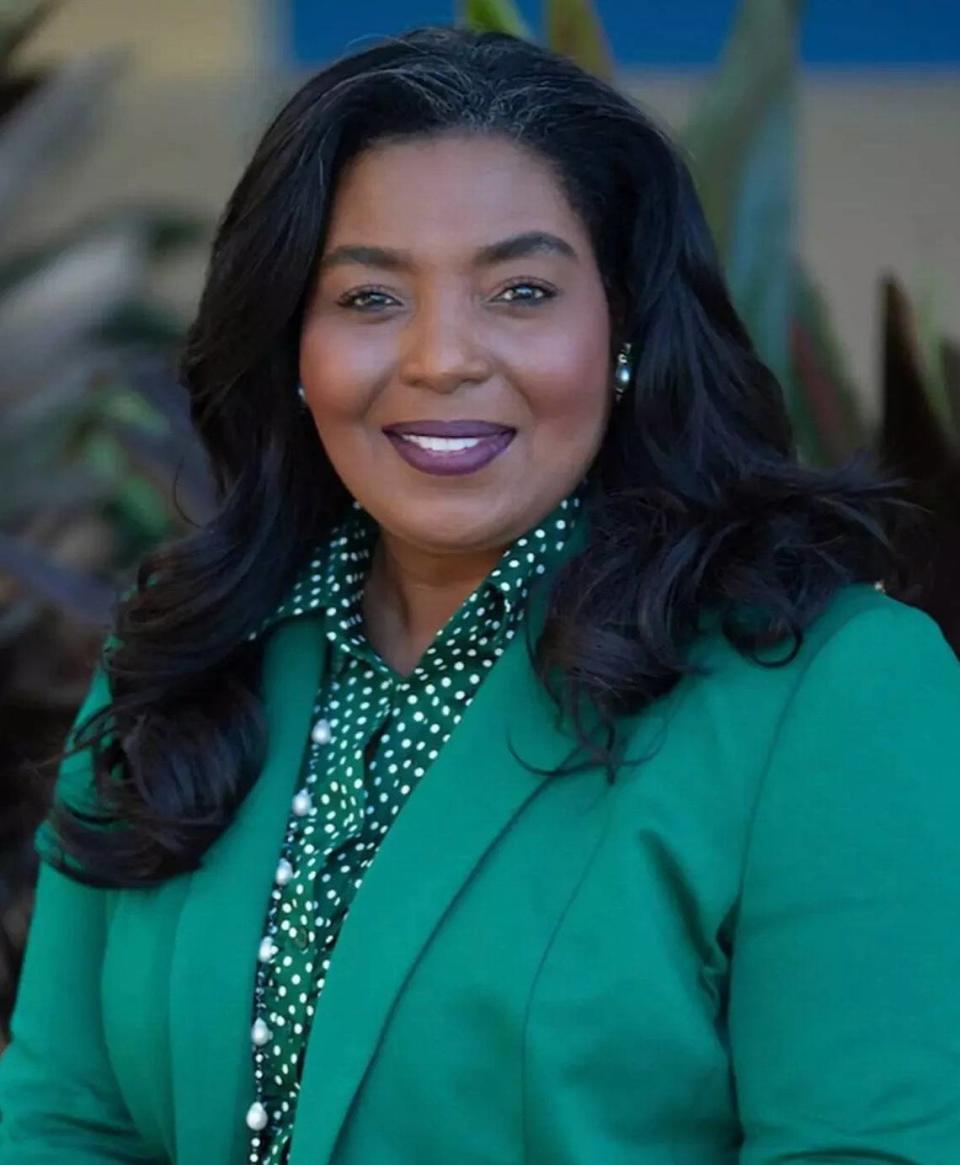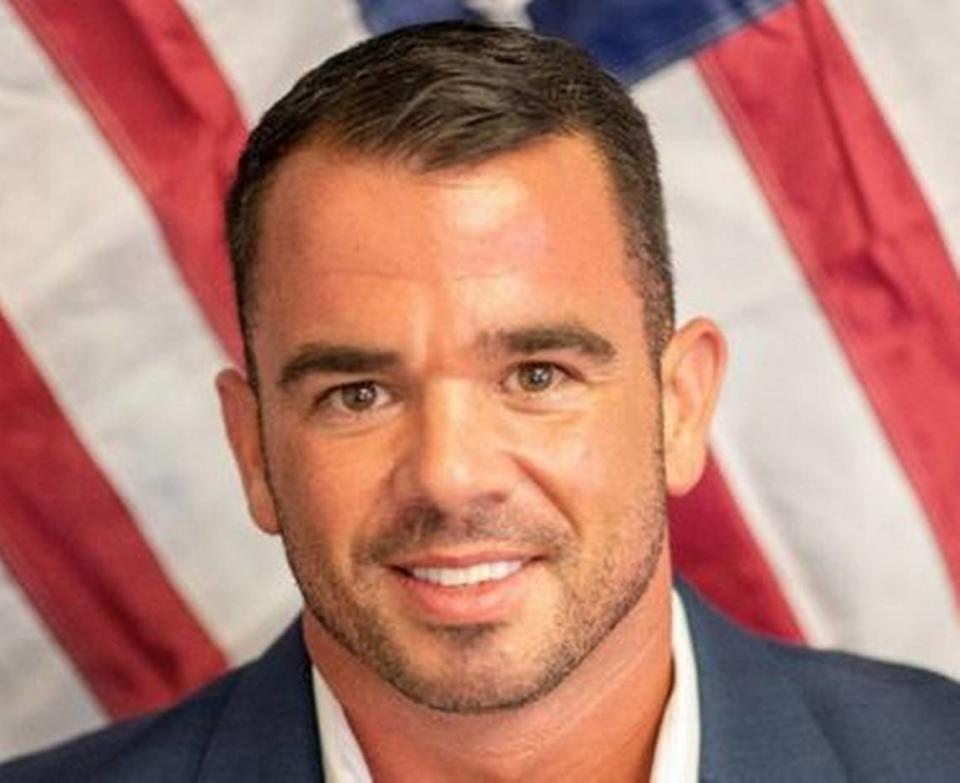Experience and compromise make this candidate ready to replace Alcee Hastings in Congress | Editorial
- Oops!Something went wrong.Please try again later.
- Oops!Something went wrong.Please try again later.
- Oops!Something went wrong.Please try again later.
The primary race to replace late U.S. Rep. Alcee Hastings encapsulates the internal battle currently roiling the Democratic Party in Congress.
Young vs. old; progressive vs. moderate; compromise vs. sticking to Democratic principles.
With 11 Democrats running on Nov. 2 to succeed Hastings, who died at 84 in April of pancreatic cancer, voters should look for someone who will not simply dig in their heels, but who’s also going to compromise to advance the interests of District 20, which covers parts of Broward and Palm Beach counties. Republicans also have a District 20 primary. Still, whoever wins the Democratic primary will be a shoo-in to win the general election on Jan. 11. This is a heavily blue district.
Early voting begins Saturday, Oct. 23 and runs through Oct. 31.
Barbara Sharief, 49, is a Broward County commissioner who was the first Black woman to serve as county mayor and president of the Florida Association of Counties. She’s also a former Miramar vice mayor and has served on several local and federal committees.
Sharief describes herself as a fiscal moderate who believes in “conservative spending” and a social progressive who supports human, LGBTQ and voting rights. She supports creating a federal program to provide Medicaid coverage for low-income adults living in states like Florida that have refused to expand Medicaid under the Affordable Care Act. She also wants to improve Medicare coverage for seniors by permanently approving telehealth visits and expanding coverage of medications. But she didn’t go as far as other candidates who support Medicare for All.
Sharief, who has a doctorate in nursing, said she supports the reforms included in a spending package Democrats are trying to pass in Congress, including universal pre-K, childcare subsidies and free community college. That package has divided the Democratic Party because moderates and progressives cannot reach agreement on the $3.5 trillion price tag. Progressive members of the House are holding up the passage of a bipartisan infrastructure bill until they are satisfied with the scope of those reforms.

District 20 should send a representative to Congress who isn’t going to feed into the gridlock and bickering we’re tired of seeing on Capitol Hill. Sharief vowed to be that person, saying that she would work toward “reasonable compromise” and that she would not go to Congress to “kill the infrastructure bill.”
Dale Holness is the other Broward County commissioner in the race and Sharief’s political rival who’s been endorsed by her ex-domestic partner, a Miramar commissioner. Holness, a real-estate broker, has come under fire for campaign ads touting an endorsement from Hastings. Although the late congressman’s widow wrote in a letter published in the Sun Sentinel that he gave Holness a verbal endorsement before dying, Hastings never said so publicly. Holness should stand on his own merits and extensive public-service record rather than on an endorsement from a political heavyweight who’s no longer here to verify it.
Sharief and Holness represent the moderate wing of the Democratic Party. Many Democrats are clamoring for the party to stop trying to appease the middle to pass progressive reforms.
Omari Hardy, a state representative from Palm Beach County, stands out in that crowd. A gifted speaker with the best command of policy details among all the candidates, he is unapologetic about his progressive views and believes Democrats “should not be afraid . . . to say that we believe in a bigger, more active federal government,” Hardy told the Herald Editorial Board.
Hardy, 31, proposes all Americans participate in a single-payer healthcare system and without allowing people the option to purchase private health insurance. That would be virtually impossible to pass and unfair to the millions of Americans who enjoy their employer-provided plans. He also advocates that the federal government provide universal basic-income subsidies. We think this would burden taxpayers.
Hardy has made a name for himself for speaking truth to power, but also for his uncompromising, poke-’em-in-the-eye approach. He was one of the few Democrats in the state Legislature to vote against a bill that granted the sugar industry immunity from lawsuits related to its pre-harvest practice of burning sugar cane, which causes respiratory issues among the majority Black population south of Lake Okeechobee. But he hasn’t been as effective as other Democrats who are willing to compromise with the Republican majority in Tallahassee to make deals.
Hardy’s claim to fame happened as a Lake Worth commissioner last year, when, in a video that went viral, he’s seen shouting at the mayor in a public meeting to protest city utility shutoffs during the pandemic. He would be a fierce advocate for District 20 and the needy, but we worry he wouldn’t be able to bring others with him.
State Sen. Perry Thurston is the antithesis to Hardy. He has a long history in the Florida Legislature, having served as House minority leader. Thurston, a lawyer, touts his ability to negotiate with Republicans and mentioned a police reform bill that became law this year that didn’t go as far as Democrats wanted but came to fruition through compromise in Tallahassee.
Thurston, 60, is an advocate for the Black community and criminal-justice reform. However, his vote for the bill granting Big Sugar immunity from lawsuits is a direct affront to the interests of Black residents in District 20 seeking environmental justice.
Another candidate also voted for that bill, state Rep. Bobby DuBose, the Florida House minority leader. Both said their vote reflected the wishes they heard from Glades residents, but neither discussed the content of the bill or justified taking away citizens’ access to the courts.
DuBose, 50, is a former Fort Lauderdale commissioner who touts his work across the aisle and trying to repeal Florida’s Stand your Ground law. He has a personal connection to two issues that affect District 20’s Black communities. He’s lost five family members to COVID and a 19-year-old college-bound cousin to gun violence.
Priscilla Taylor, 71, is a former Palm Beach County commissioner and state representative. A self-described moderate, she supports Medicare for All and believes President Biden should push for the end of the filibuster, a Senate procedure that has allowed the GOP to stall progress of important legislation.
Sheila Cherfilus McCormick, 42, of Miramar, is CEO of Trinity Healthcare Services and is funding her own campaign. She’s done her homework and is running on a platform of providing $1,000 stimulus checks to people making less than $75,000 while the country recovers from the pandemic — a far-fetched and gimmicky election-year promise.
Elvin Dowling, a Florida Book Award-winning writer and former chief of staff at the National Urban League, showed good knowledge of the issues and proposals, especially for someone who hasn’t held elected office. A “progressive in the strongest sense of the word,” he said that Democrats shouldn’t “nibble around the edges” of issues like climate change that need bold solutions. We hope he stays engaged in politics.
The other candidates are Phil Jackson, 66, a Navy veteran, and Emmanuel Morel, a former federal investigator whose main issue is reparations for slavery. Both seem to want to help their communities, but they don’t have the same experience in elected office as others. Dr. Imran Uddin Siddiqui did not attend a Herald Editorial Board interview.
With 11 options on the ballot, it’s hard for one candidate to stick out, but Sharief strikes the right balance between pushing for progressive ideas and compromise. Her experience in government and her appointments to the Association of Counties and other organizations have prepared her to assume a larger role as congresswoman.
Sharief does have a stain on her record. In 2013: A state audit concluded her Pembroke Pines-based firm, South Florida Pediatric Homecare, overbilled Medicaid for patient services by almost $500,000. She told the Editorial Board she “signed a confidential agreement that says there is no wrongdoing” and that these types of audits are common in the healthcare industry. She agreed to repay about $540,000, including fines, to settle the matter. That she agreed to repay taxpayers is important.
We recommend BARBARA SHARIEF for U.S. House District 20.
Republican field
Jason Mariner is open about having served two stints in state prison for drug and theft violations, which he said were caused by an addiction to prescription drugs. He turned his life around and co-founded a drug detox and rehab facility and runs a marketing company. Mariner, of Jupiter, was the only Republican who responded to an Editorial Board invitation for an interview. His opponent, Greg Musselwhite, doesn’t appear to be doing as much campaigning.

Mariner said he doesn’t currently live in District 20, but will be moving there “shortly.” Mariner is against the Affordable Care Act and believes healthcare should be provided by employers only. He hit all the GOP talking points, but his grasp of the issues was thin. He said hammers kill people 700 times more than guns, but, in 2019, 397 people were killed by blunt objects such as hammers compared to 10,258 killed by firearms, according to the FBI.
But he’s the only Republican we know anything about, so he might be Republican voters’ best choice in this district where Democrats outnumber Republicans by a 5-1 margin anyway.

